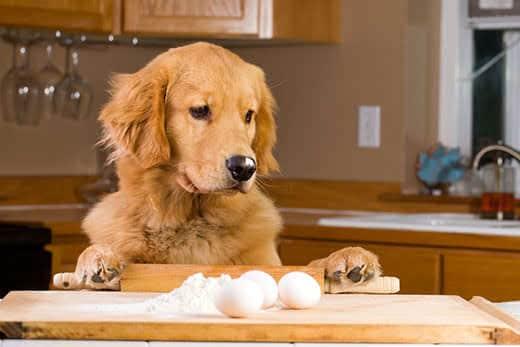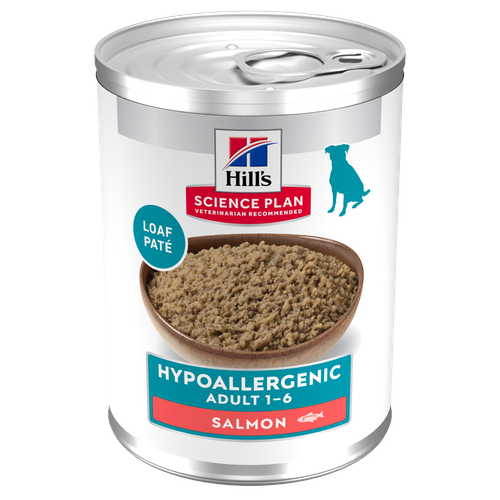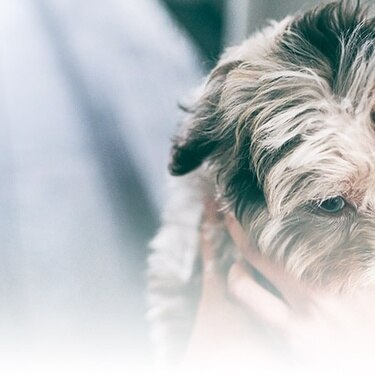
-
Find the right food for your petTake this quiz to see which food may be the best for your furry friend.Find the right food for your petTake this quiz to see which food may be the best for your furry friend.Featured products
 Mature Adult Dog Food
Mature Adult Dog FoodHill's Science Plan Mature Adult Multipack Wet Dog Food with Chicken & Beef are complete premium pet foods for mature adult dogs from 7 years. Your dog will love these deliciously smooth and savoury minced loaves, formulated to deliver the appropriate amount of energy to support the needs of adult dogs.
Shop Now Adult Wet Dog Food with Beef
Adult Wet Dog Food with BeefHill's Science Plan Adult Multipack Wet Dog Food with Chicken, Beef & Turkey are complete premium pet foods for adult dogs from 1 year. Your dog will love these deliciously smooth and savoury minced loaves, formulated for balanced nutrition and overall health.
Shop Now Puppy Food
Puppy FoodHill's Science Plan Puppy Multipack Wet Dog Food with Chicken & Beef are complete premium pet foods for growing puppies from weaning until 1 year old and for pregnant and nursing dogs. Your puppy will love these deliciously smooth and savoury minced loaves, formulated for balanced nutrition and overall health.
Shop NowFeatured products Light Adult Multipack Wet Cat Food with Chicken & Ocean Fish
Light Adult Multipack Wet Cat Food with Chicken & Ocean FishTender chicken chunks in gravy for cats, with L-carnitine and fewer calories for ideal weight management. Packed with high-quality protein, omega-6s, and vitamin E for shiny fur and healthy skin.
Shop Now Mature Adult Wet Cat Food with Chicken
Mature Adult Wet Cat Food with Chicken
Tender chicken chunks in gravy for mature adult cats. Made with easy-to-digest ingredients, high-quality protein for lean muscle maintenance and antioxidant vitamins C+E for optimal health.
Shop Now Adult Multipack Wet Cat Food with Beef, Ocean Fish & Chicken
Adult Multipack Wet Cat Food with Beef, Ocean Fish & ChickenTender chunks in gravy for cats, with high-quality protein to maintain lean muscle. With vitamin E and omega-3s & -6s for healthy skin and balanced minerals to support healthy vital organs.
Shop Now -
Dog
- Dog Tips & Articles
-
Health Category
- Weight
- Food & Environmental Sensitivities
- Urinary
- Digestive
- Joint
- Kidney
-
Life Stage
- Puppy Nutrition
- Adult Nutrition
- Senior Nutrition
Cat- Cat Tips & Articles
-
Health Category
- Weight
- Skin & Food Sensitivities
- Urinary
- Digestive
- Kidney
-
Life Stage
- Kitten Nutrition
- Adult Nutrition
Featured articles The Right Diet For Your Pet
The Right Diet For Your PetIn people, the right diet is very important. If you are eating the wrong way for your metabolism, activity level, age and lifestyle you could end up with health issues.
Read More The Incredible Science Behind Your Pet's Microbiome
The Incredible Science Behind Your Pet's MicrobiomeLearn what your pet's microbiome is, how it contributes to your pet's gut and overall health, and why nutrition is important in maintaining healthy microbiomes.
Read More Show some love with wet foods: a great choice for pets with health issues
Show some love with wet foods: a great choice for pets with health issuesShow some love with wet foods: a great choice for pets with health issues.
Read More -


Eggs are a great source of protein. They can be delicious when boiled, fried or scrambled for breakfast; they're key parts of many favourite desserts; and they're sometimes surprisingly delicious on burgers. Raw or undercooked eggs, however, can expose humans to dangerous bacteria, such as Salmonella. Is the same true for our four-legged friends?
If you're an egg lover, it only makes sense that you'd want to share some with your dog. But, can dogs eat eggs? Let's find out whether or not eggs are a safe food for your dog, and discover safety precautions surrounding this popular food.
Can Dogs Eat Eggs?
Believe it or not, dogs can eat eggs! Eggs are high in protein and contain many essential fatty acids and essential amino acids. This makes them a yummy — and healthy — snack when cooked or boiled. Eggs can also be an important source of protein in some commercial dog foods.
As with any treat, it's important to use moderation when feeding home-cooked eggs to your dog. Even though they're a fantastically healthy food, it's possible for your dog to eat too many eggs or, with repeat overfeeding, to become obese. Before you start adding eggs to your dog's meal plan, ask your veterinarian how you can safely introduce them to your dog's feeding.


Tasty Tips
Can Dogs Eat Raw Eggs?
Although cooked eggs can be a nutritious treat for your dog, raw eggs are dangerous. As with humans, raw eggs can expose dogs to harmful bacteria, such as Salmonella, which can then spread back to their pet parents (especially those with a compromised immune system). But beyond bacteria, there's another threat raw eggs pose to your dog's health: biotin deficiency.

The American Kennel Club (AKC) explains, "[Raw eggs] contain an enzyme that ties up biotin and prevents absorption of biotin into the body". Because biotin is a vitamin responsible for supporting critical bodily functions (including digestion, skin health and metabolism), deficiency puts your dog at risk of serious health complications.
If your dog has accidentally consumed some raw eggs, it's important not to panic. Although the aforementioned issues are frightening, they're rare. If your dog has eaten raw eggs for the first time and their digestive system isn't accustomed to them, they may experience issues such as diarrhoea or vomiting for a day or two after consumption. If you're noticing this issue, make sure to contact your veterinarian.
It's important to monitor your dog's health for the next week or so after they've consumed raw eggs. If you start to notice your dog exhibiting more serious, prolonged issues like lethargy or digestive symptoms, contact your vet immediately. These may be signs that your dog has contracted a bacterial infection of the GI tract.
How to Prepare Eggs for Your Dog
When preparing eggs for your dog, you'll want to think about simplicity and safety. Dogs can eat scrambled eggs, but whole boiled eggs can pose a choking hazard. When feeding your dog a boiled egg, make sure you cut the egg into bite-sized pieces that are easy for them to chew and swallow.
Unlike in your own breakfast, your dog's eggs should be prepared without any of the additives we use to bolster taste, such as oil, salt and butter. High salt intake may aggravate heart disease in dogs. Meanwhile, fats like oil and butter can contribute to weight gain, which puts your dog at risk of obesity-related health issues such as diabetes and osteoarthritis.
It's also worth noting that you should always let the eggs cool down before you provide them to your dog. Most dogs don't have the same reservations for thinking about how hot the food is before gobbling it down and could burn their mouths if they eat them right off the stove. Also, always remember to consider calories as part of your dog's daily meals. If you introduce eggs to their meal plans, make sure that these "extra snacks" do not account for more than 10 percent of their daily caloric intake without proper permission from your veterinarian. While eggs can be nutritious for your dog, they still need plenty of other nutrients to keep them happy and healthy, which is why a properly balanced premium dog food is always recommended.
When properly cooked and served in moderation, eggs can be an excellent addition to your dog's meal plan. By keeping your recipes simple and ensuring that the eggs are cut into small pieces, you could introduce your dog to a brand-new, healthy treat that they'll love for the rest of their lives.


Erin Ollila believes in the power of words and how a message can inform—and even transform—its intended audience. Her writing can be found all over the internet and in print, and includes interviews, ghostwriting, blog posts, and creative nonfiction. Erin is a geek for SEO and all things social media. She graduated from Fairfield University with an M.F.A. in Creative Writing. Reach out to her on Twitter @ReinventingErin or learn more about her at http://erinollila.com.
Related products

Hill's Science Plan Hypoallergenic Adult Wet Dog Food with Salmon is a complete premium pet food for all adult dogs from 1 year. This savoury tinned loaf is specially formulated for dogs with delicate skin and stomachs. It features a single novel animal protein source and is grain-free.

Hill's Science Plan Puppy Multipack Wet Dog Food with Chicken & Beef are complete premium pet foods for growing puppies from weaning until 1 year old and for pregnant and nursing dogs. Your puppy will love these deliciously smooth and savoury minced loaves, formulated for balanced nutrition and overall health.

Hill's Science Plan Adult Multipack Wet Dog Food with Chicken, Beef & Turkey are complete premium pet foods for adult dogs from 1 year. Your dog will love these deliciously smooth and savoury minced loaves, formulated for balanced nutrition and overall health.

Hill's Science Plan Mature Adult Multipack Wet Dog Food with Chicken & Beef are complete premium pet foods for mature adult dogs from 7 years. Your dog will love these deliciously smooth and savoury minced loaves, formulated to deliver the appropriate amount of energy to support the needs of adult dogs.
Related articles

How, when and what to feed your new puppy is an important decision, learn more about the things to consider for feeding your puppy.

Learn effective tips for feeding a dog that's a picky eater and ensure proper nutrition for a finicky eater. Discover tips for pet parents at Hill's Pet UK.

Many human foods are dangerous to dogs. Read about 5 of the worst toxic food offenders that can kill your dog - and how much it takes to hurt them.

Learn about the potential health risks of a raw diet for dogs and why they aren't the best option for your pup or you.

Put your dog on a diet without them knowing
Our low calorie formula helps you control your dog's weight. It's packed with high-quality protein for building lean muscles, and made with purposeful ingredients for a flavourful, nutritious meal. Clinically proven antioxidants, Vitamin C+E, help promote a healthy immune system.
Put your dog on a diet without them knowing
Our low calorie formula helps you control your dog's weight. It's packed with high-quality protein for building lean muscles, and made with purposeful ingredients for a flavourful, nutritious meal. Clinically proven antioxidants, Vitamin C+E, help promote a healthy immune system.

